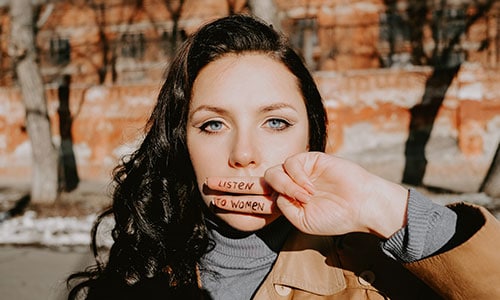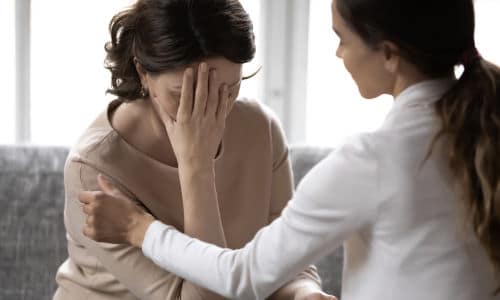
Over the past few years, we’ve seen the rise of cancel culture on social media, in particular. on Twitter, given it’s the most public platform. Anyone can see or read what anyone else is saying. And for all the purported good that is supposedly being done and the wrongs that are being put right in the name of ‘cancelling,’ it leaves a trail of destruction in its wake. It’s not so much the fact that people are being made to take accountability for their actions. It is a good thing that people and corporate entities are being held to their words and actions. The problem lies in the road to redemption or the lack there of…
What is Cancel Culture?
Cancel culture is in essence the evolution of the term boycotting. Those being ‘cancelled’ are largely confined to the realms of celebrities/public figures and prominent corporations. To be cancelled means you’ve essentially made a misstep, an error in judgement or not uncommonly have had some of your language paraphrased and used against you. There may or may not be malicious intent behind what is said or done. But regardless, it often results in a PR maelstrom and a whirlwind of ‘social justice,’ which leads to the person or entity in question issuing an apology, retraction or clarification on what was the actual intended meaning. But this isn’t enough…
To be cancelled is to have no way back. It’s a life sentence of ex-communication, which for those unfortunate enough to be in the public spotlight and feel the brunt of being cancelled means being de-platformed. Most often, people are cancelled for being racist, homophobic and otherwise expressing extremely conservative views about minority groups, which, to be clear, is not to be condoned. Many celebrities have felt the backlash of being cancelled in past year from JK Rowling to Shane Dawson and many others in between. In some cases, the stature of the individual has seen them ride out the media storm, while others have seen support for their work redrawn by the vast majority of their fanbase. And this, despite – in some cases – a sincere apology. If you’re cancelled, you’re cancelled. But is it truly the best way to go about things?
How Did Cancel Culture Become So Prevalent?
Cancel culture first came into public awareness around 2017, and coincided with the #MeToo movement. It was at a time when there were increasingly allegations around sexual abuse, which had either been suppressed, gone unreported or otherwise disbelieved – such was the unfortunate climate around victims of abuse at the time. In many ways, cancel culture was a reaction to that wall of unresponsiveness and institutions, in particular, to acknowledge a longstanding problem. Cancelling was a form of power take back from the disaffected and disillusioned. In some ways, it was inevitable. And it saw the balance of power shift from the anonymous perpetrators to the victims of these crimes. However, when you couple that with the wildfire-like spread of information and buzzwords throughout social media, it quickly took on a life of its own. Cancelling become less about being a form of empowerment for victims and more about wielding absolute power over any and all of those who would commit any misstep.
Why is Cancel Culture So Toxic?
The reason cancel culture is so toxic is because it represents something akin to mob rule and a form of vigilantism for the digital age. There is only deletion, no chance for revision or redaction; no amendments or second chances. It’s very much a case of the loud minority taking over the casting vote and deciding what the public opinion on a given person, event or idea should be. But the biggest problem is that it’s no longer confined to the arena of taking public figures to task for ill-advised actions. It’s become so prevalent, that many ordinary people are felling the sharp end of the social justice sword. And to that end, it is no longer simply de-platforming people with questionable ethics, it’s preventing free speech.
A recent example of this is David Shor, who tweeted a study sourced from an academic journal that questions the political consequences of violent and peaceful protests. Shor tweeted the link during the George Floyd protests and was promptly fired from his place of work, although the company maintain it had nothing to do with the tweet. And it is this kind of reasoned discussion that’s being shut down due to cancel culture, which is the most disconcerting. It makes people fearful of wanting to speak up and speak out even if it’s in a constructive manner if this is the kind of blowback they’ll receive. This kind of cancel culture is accountability on steroids, and a form of collective bullying which is impeding our progress as a society not facilitating it.
The Mental Effects of Cancel Culture 200
To give a partisan view of cancel culture, although it has at this point gotten out of control, there no denying it has been incredibly effective at combatting wrongdoing, sexism, racism and other social maladies. It has promoted equality in its own way. But what are the actual effects of those involved in the cancelling process?
The Cancelled
It doesn’t matter who you are, or what your social status, we’re all beholden to the same emotions as everyone else. And once the cancelling has begun, it very quickly turns into collective bullying. It can make you feel ostracised, isolated and lonely, which can in some cases lead to depression, anxiety and other associated conditions. This can be especially so if you’ve not even been given a clear indication as to why you’ve been cancelled, which can oftentimes be the case, initially. There is no opportunity for learning or grow from a “mistake,” only condemnation.
The Canceller
The main adjunct with the canceller is one of polarity. Of course, we all have the right to set our own boundaries and decide what is and is not acceptable to us. You always have the right to decide to whom you give your support, energy and friendship. However, cancelling the offending person doesn’t provide remedy or revolve to your feelings, it simply feeds into a state of increased polarity in which you will inevitably be offended by the same of similar circumstance in the future. It creates a worldview that is impossible to maintain.
The Bystander
For the bystander, the seemingly unaffected are perhaps the largest affected group in the whole situation. And long as people are seen to be cancelled for minor infractions, it leaves many others wondering if they should even speak their mind at all. Then, if and when people do breakthrough that fear barrier, there is anxiety, accompanied by the thought of, ‘will I or will I not be persecuted for what I’m sharing here?’ and ‘Will someone find something in my past to use against me?’ So, instead of speaking up for themselves, they remain silent, even when it matters the most. This can then cause guilt after the fact for not doing what should have done and saying what should have been said.
















